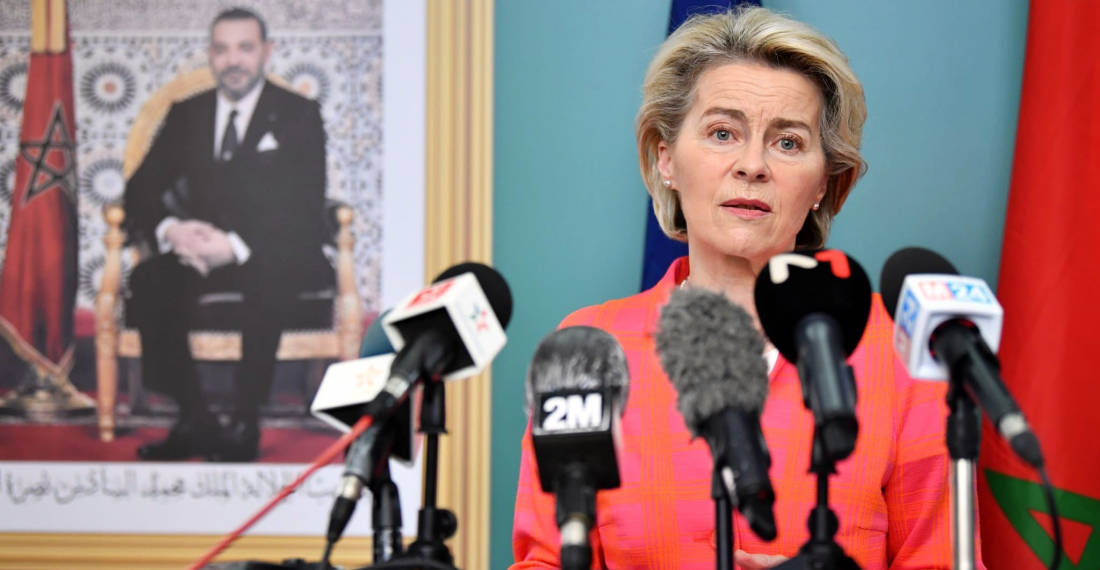President of the European Commission, Ursula von der Leyen, expressed the Union's determination to further strengthen its relations with Morocco in remarks made during a visit to Morocco this week to promote Europe's new Global Gateway investment scheme.
On Tuesday (8 February), she met separately with Prime Minister Aziz Akhannouch and Foreign minister Nasser Bourita tp discuss ways to foster EU-Moroccan partnership, the global challenges facing Morocco and Europe, as well as the new agenda for the Mediterranean.
Von der Leyen hailed the shared Moroccan-European cultural legacy which has been mutually nourished over the centuries. In her visit, she announced that the European Union will invest €1.6 billion ($1.8 billion) in Morocco to produce green energy.
“I reaffirm our desire to continue to deepen our relations – as neighbours, as partners, as friends”, she stressed, affirming that the two partners can build a common and ambitious vision of their partnership. “We are also cooperating to strengthen the connectivity of our societies, including through a broad digital partnership”, von der Leyen said, affirming that “much can be done to further integrate our economies and better adapt them. This will benefit our companies and their employees”.
In 2019, the “Euro-Moroccan Partnership for Shared Prosperity” was established between the EU and Morocco for enhanced political consultation and better cooperation.
Von der Leyen is also visiting Senegal today (9 February) in preparation for the European Union-African Union summit scheduled for next week in Brussels. The summit should identify a first set of strategic interventions in infrastructure, value-chain and private-sector development, vocational training and health.






